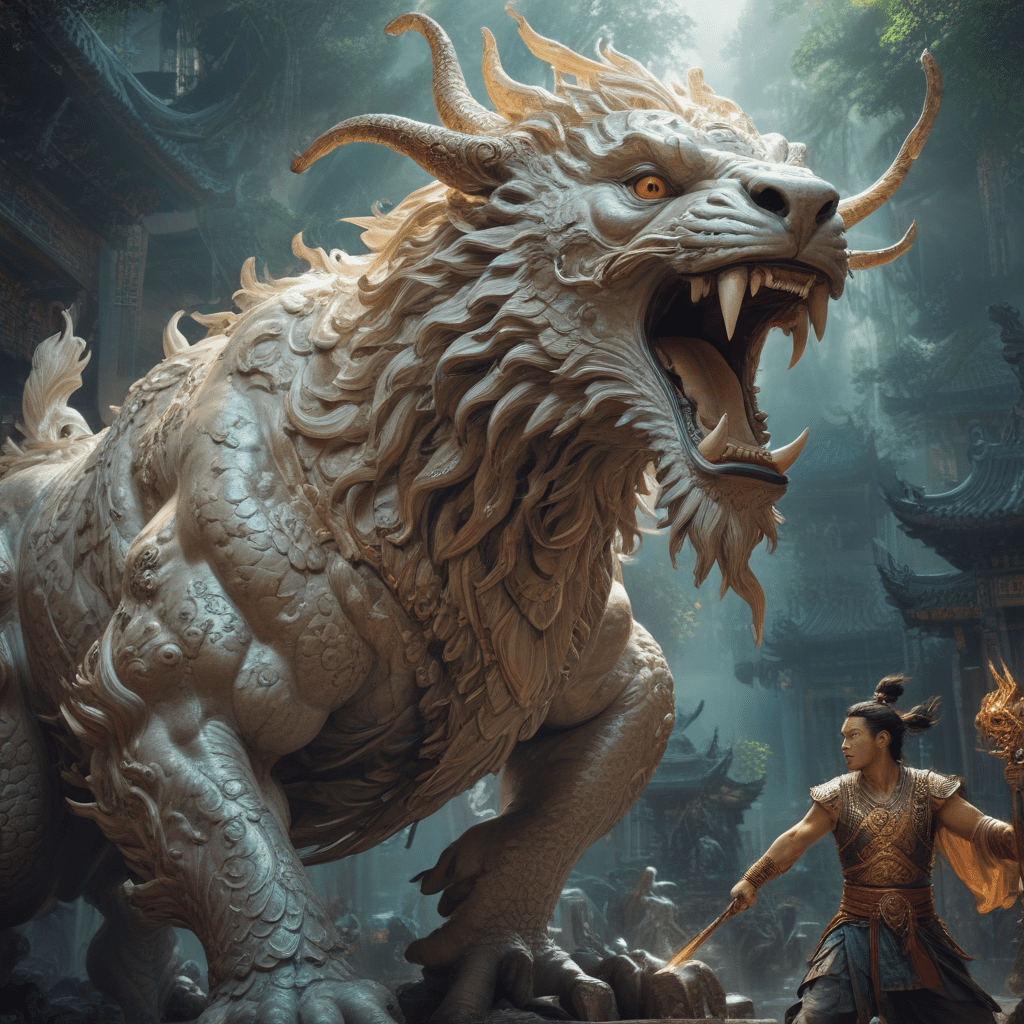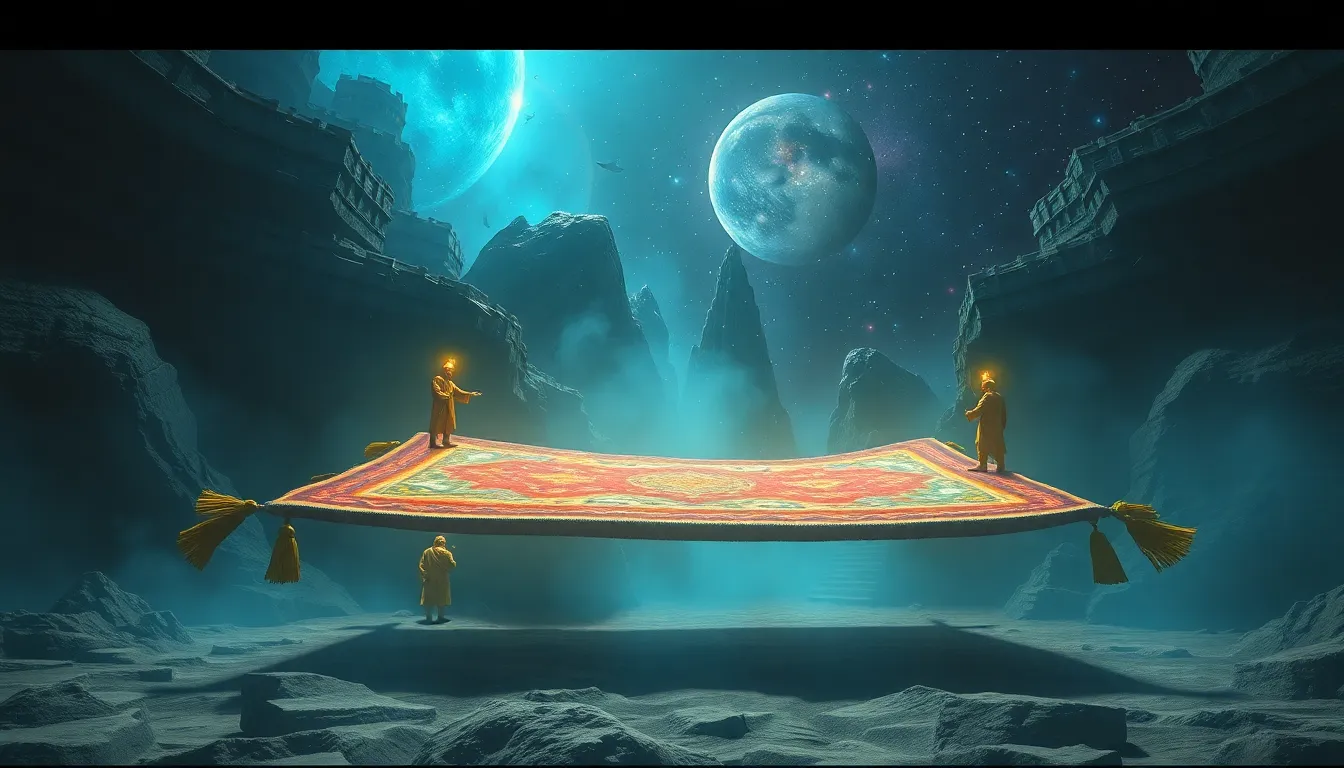Exploring the Creation Myths in Chinese Mythology
1. Introduction: Unraveling the Tapestry of Chinese Creation Beliefs
Chinese mythology is a vast and intricate tapestry of creation myths, each contributing a unique thread to the grand narrative of the universe's formation. These myths delve into the origins of the cosmos, the emergence of humanity, and the interplay between the celestial and terrestrial realms. Exploring these creation tales offers a glimpse into the profound imagination and cultural beliefs of ancient China, shedding light on the fundamental questions that have fascinated humanity for centuries.
2. The Primordial Chaos: Pangu and the Birth of the Universe
In the heart of the primordial chaos, a colossal figure named Pangu slumbered. As he awoke, his immense stature began to separate the heavens and the earth. With each breath, he exhaled the sun, moon, and stars, and with every exhalation, he created mountains, rivers, and plains. After 18,000 years of relentless effort, Pangu's body transformed into the pillars of the universe, holding the cosmos together and shaping the landscape of the world.
3. The Separation of Heaven and Earth: Nuwa and the Balancing of Elements
Following Pangu's separation of heaven and earth, the celestial and terrestrial realms remained unbalanced. Nuwa, the goddess of creation, took it upon herself to rectify this imbalance. She gathered five-colored stones and melted them to mend the broken sky, patching the celestial vault to prevent the heavens from collapsing onto the earth. Nuwa's efforts not only stabilized the universe but also introduced the concept of the five elements: fire, water, earth, wood, and metal, which became integral to Chinese philosophy and cosmology.
4. The Creation of Humans: Nüwa Shapes Mankind from Clay
With the sky and earth in equilibrium, Nuwa embarked on a new endeavor: the creation of humanity. She collected yellow earth from the bank of the Yellow River and molded it into the form of human beings. These early humans were clumsy and weak, lacking the wisdom and skills necessary to survive. Nuwa, in her compassion, bestowed life upon them, breathing into their nostrils and giving them the spark of consciousness. Thus, humanity was born, forever indebted to Nuwa as their progenitor.
5. The Story of Fuxi and Nuwa: Marriage and Cultural Innovations
Fuxi and Nuwa, siblings and legendary rulers, are revered for their contributions to early Chinese civilization. They are often depicted as a married couple, their union symbolizing the harmony between the male and female principles. Fuxi is credited with inventing writing, fishing nets, and the eight trigrams of the I Ching, while Nuwa is said to have introduced marriage, pottery, and the domestication of animals. Together, they laid the foundation for Chinese culture and societal advancements.
6. The Creation of the Cosmic Tree: Jianmu and the Communication with the Heavens
In Chinese mythology, Jianmu is revered as the cosmic tree that connects the celestial realms with the mortal world. Its branches reach up to the heavens, allowing gods and immortals to descend to Earth, while its roots delve deep into the underworld, providing a pathway for mortals to ascend to the divine realms. According to legend, Jianmu was planted by the legendary ruler Emperor Yao as a means of communication between heaven and earth, facilitating the exchange of knowledge, wisdom, and blessings between the two realms.
7. The Legend of the Kunlun Mountains: A Sacred Realm of Origin
Nestled in the heart of Central Asia, the Kunlun Mountains hold immense significance in Chinese mythology as the abode of the immortals and the birthplace of humankind. Legends abound regarding the origins of the Kunlun Mountains, with some claiming that they were formed from the vertebrae of the cosmic turtle Ao. As the dwelling of deities, the Kunlun Mountains are believed to be a place of purity and transcendence, where immortals reside amidst celestial palaces and gardens.
8. The Emergence of Primitive Deities: Zhurong, Gonggong, and the Formation of Order
Zhurong and Gonggong, two primordial deities, play crucial roles in Chinese creation myths and the establishment of order in the universe. Zhurong, the god of fire, is associated with the sun and is believed to have taught humans the art of making fire, providing warmth and protection. In contrast, Gonggong, the god of water, is often depicted as a destructive force, responsible for causing floods and chaos. The interactions between Zhurong and Gonggong symbolize the delicate balance between opposing forces, shaping the world and bringing order out of chaos.
9. The Cosmic Egg Theory: A Variation on the Traditional Creation Narrative
An alternative creation myth from ancient China is the cosmic egg theory, which postulates that the universe originated from a primordial egg. Within this egg, the forces of yin and yang, representing darkness and light, swirled and transformed, eventually giving rise to the heavens, the earth, and all living beings. The cosmic egg theory offers a unique perspective on the origins of the universe, emphasizing the cyclical nature of existence and the interconnectedness of all things.
10. Significance and Legacy of Chinese Creation Myths: Cultural and Philosophical Implications
Chinese creation myths have had a profound impact on Chinese culture and philosophy, shaping societal beliefs, values, and artistic expressions. These myths provide a framework for understanding the origins of the universe, humanity's place within it, and the inherent connections between the celestial and terrestrial realms. They have inspired countless works of art, literature, and philosophy, enriching Chinese cultural heritage and contributing to the collective human understanding of the cosmos and its origins.
FAQ
What are the main creation myths in Chinese mythology?
Chinese creation myths include the stories of Pangu separating heaven and earth, Nuwa creating humans from clay, and the cosmic egg theory.
Who is the creator deity in Chinese mythology?
Pangu is considered the primary creator deity in Chinese mythology, who separated heaven and earth and shaped the universe.
What is the significance of the cosmic tree in Chinese mythology?
The cosmic tree, Jianmu, connects the celestial realms with the mortal world, facilitating communication and the exchange of knowledge between the two realms.
What is the role of primitive deities in Chinese creation myths?
Primitive deities like Zhurong and Gonggong represent opposing forces that shape the universe, bringing order out of chaos and establishing balance.



